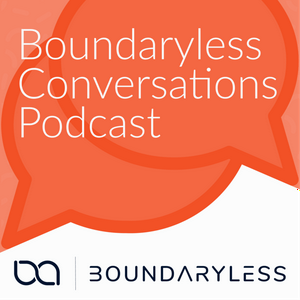What happens when work no longer guarantees reward and time itself feels unanchored?
In this episode, Jasmine Bina - brand strategist, cultural futurist, and CEO of Concept Bureau - joins us to explore how meaning, culture, and value creation are being reshaped in societies and affecting our organisations.
Drawing on her latest work, Age of Potency, Jasmine unpacks how cultural resets have now created “vacuums” that are being filled through new forms of identity, experimentation, spirituality, and community, among others.
We discuss what this shift means for organisations and brands, why optimisation and expertise are giving way to experimentation, and how brands can play a role in helping people form new meaning systems.
This episode offers a powerful lens for understanding cultural change and why the next era of value creation will belong to those willing to engage with uncertainty.
Jasmine takes us inside her work of tracking emerging signals at the edges of society, sharing how “Exposure Therapy” - her practice and community - deliberately immerses strategic minds in unfamiliar and often overlooked cultural spaces where new forms of meaning, and the future itself, first take shape.
Together, these reflections offer a powerful perspective on brand-building as a disciplined practice - less of a formula that needs to be applied, and more of a form of training that strengthens perception, resilience, and judgment in times of deep cultural change.
Key Highlights
👉 Culture is not collapsing but reorganising, as traditional sources of meaning around work, trust, and time lose their power and create cultural “vacuums.”
👉 When work no longer guarantees reward, people begin experimenting with new identities, values, and meaning systems beyond professional success.
👉 Trust does not disappear in times of crisis - it relocates to spaces where people willingly embrace vulnerability, often outside mainstream institutions.
👉 Brands and organisations can no longer rely on optimisation and expertise; experimentation is becoming the primary way to generate new insight and value.
👉 The future of culture is already visible in people’s private lives, where latent identities and unmet desires take shape long before markets recognise them.
👉 Exposure to unfamiliar, uncomfortable, and marginal cultural spaces is essential for sensing emerging signals.
👉 Optimism is not wishful thinking but a strategic posture that enables better pattern recognition and more meaningful connections across signals.
👉 Technology does not determine the future on its own - culture bends technologies to human needs, values, and belief systems.
👉 Brands that matter in the next decade will help people navigate uncertainty by offering new narratives about what it means to live well, belong, and contribute.
Topics /chapters
(00:00) The Age of Potency: How Meaning, Work, and Trust Are Being Rewritten - Intro
(01:23) Introducing Jasmine Bina
(08:44) Organisational and Consumer Responsibilities in the Age of Potency
(12:39) Are companies prepared for the cultural shifts?
(16:10) Are organisations looking into brand textures?
(19:41) What’s the culture one can hold onto?
(22:36) The Culture of Limits
(30:30) What should we be thinking about as brands?
(34:21) How do you avoid self-fulfilling prophecies?
(43:15) Breadcrumbs and Suggestions
Remember that you can always find transcripts and key highlights of the episode on our website: https://www.boundaryless.io/podcast/bina-jasmine
Episode recorded on Nov 13, 25
Find out more about the show and the research at Boundaryless at https://boundaryless.io/resources/podcast/
Get in touch with Boundaryless:
Twitter: https://twitter.com/boundaryless_
Website: https://boundaryless.io/contacts
LinkedIn: https://www.linkedin.com/company/boundaryless-pdt-3eo
Music
Music from Liosound / Walter Mobilio. Find his portfolio here: https://blss.io/Podcast-Music


